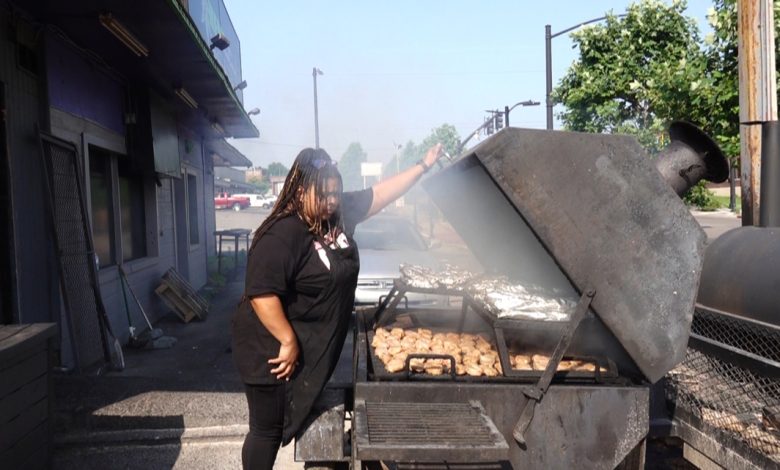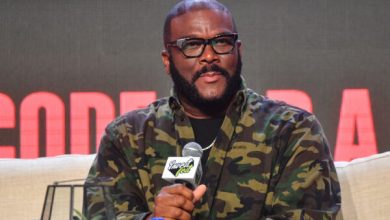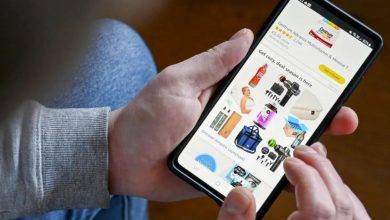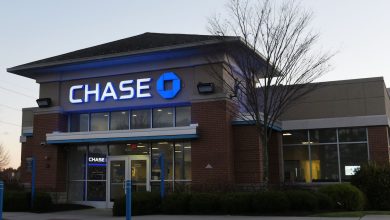Growth of Black-owned businesses in Knoxville highlighted

Black business owners in Knoxville share experiences, growth, and challenges of entrepreneurship, emphasizing unity and community impact.
KNOXVILLE, Tenn. — In 2024, the National Urban League, Third Way and Alliance for Entrepreneurial Equity published a “State of Black Business Report” that found Black-owned businesses across the nation are growing slowly, but are still dramatically underrepresented.
In Knoxville, there are more than 200 Black-owned businesses.
One of those is Billie Rae’s BBQ. Patrice Chandler and her husband Eugene opened the restaurant in April 2024. In the past 14 months, the pair has learned many lessons and fallen in love with working together as a family.
“It’s hard work,” Chandler said. “Most people don’t realize how hard it is, but we enjoy doing what we do. We never knew what we were getting into. We thought it was gonna be easy just to open up, and then once we got going, we realized, oh my gosh, our bodies are hurting so bad. We love catering to people, we love seeing smiles on people’s faces.”
Patrice and Eugene were born and raised in East Knoxville, but said it can sometimes be a struggle for the community to find ways to maneuver running Black businesses there.
Promoting diversity in the area is important as it helps people become open-minded, communicate more effectively and learn about other people’s traditions, beliefs, and truths, Patrice Chandler said. This is something she is beginning to see more and more.
“It’s like there’s a rejuvenation, so we’re coming back through and some other smaller businesses are coming back through and so we’re starting to pave the way until the others can do it too,” Chandler said.
Deborah Porter, chairperson of the Martin Luther King Jr. Commemorative Commission, was raised in the Mechanicsville community. Growing up, she remembered plenty of Black-owned businesses.
“If we look at today, because of how things have evolved over the years, we’ll find that we don’t have as many,” Porter said. “Not only your mom and pop stores, but you had different retail stores. We still have a few bookstores and some retail, restaurants and beauty shops, but in comparison to those things that actually happened way back when, we don’t have those at this point.”
While serving as a chairperson, Porter has helped Black businesses grow for years by trying to remove barriers. When Kryshonna Fair opened Urz Professional in 2021, she faced a barrier.
“When I first came out, people were talking about crowdfunding and things like that and it was like my community doesn’t have that money,” Fair said. “Or they would say, ‘Oh well, you know, I have a friend that I know who has all of this money and they were willing to invest in me.’ I’m not in those circles, so people are less likely to give you money when they don’t know you, so we have to start from the very bottom, so our things can’t look as nice; they can’t grow as fast as other businesses.”
For the past four years, Fair has worked to overcome that. Serving women through her salon from lash lifts to hair styling, with a team of diverse estheticians and clients.
“We’re more powerful together than we are separate and I wanted to show we can have luxury, yes, we can be upscale, and yes, it can be Black-owned,” she said.
Fair is committed to leading by example. She emphasized her desire to inspire young girls, encouraging them to believe in themselves and pursue anything they set their minds to. This is the same mindset that Kimberly Black has.
Black is the owner of Trusted Field Services. She said she had many women who had approached her, expressing their interest in working in construction.
“They were able to relate to me and so that’s important, you know, having people seen, having women in board rooms to be able to have them as decision makers, to have a voice because when everyone has a voice, it levels the playing field for us,” she said.
It’s a responsibility and a role Black said she never pictured for herself. She left a corporate job in search of more meaningful work and found an interest in construction through online research. After starting Trusted Field Services in Texas, she relocated to East Tennessee during COVID.
From major projects like helping construct Covenant Health Park in the Old City to winning awards from organizations like the YWCA, Black is making a mark in Knoxville with help from local resources, like the Knoxville Entrepreneurship Center and the Urban League.
Black emphasized the importance of dreaming big, thinking outside the box and showing young people that there’s space for everyone to pursue their passions, whether in construction, teaching, medicine or science.
She said she found experts’ advice and valuable research from the groups, although she said there were still plenty of challenges.
“Small businesses, we’re going to have hurdles,” she said. “It could be seasonal, it could be anything that has to do with products. So you just have to be able to adjust and adjust quickly. You can’t drag your feet.”
For Black-owned businesses, those hurdles can be amplified.
As Knox County Commissioner, Damon Rawls has gotten familiar with the Black business scene in the area. He expressed concerns about reports that half of Black-owned businesses might close, even before COVID. This eventually led to Rawls creating a directory to support those businesses, which quickly took off.
The directory has over 200 business listings, with roughly 2,000 people visiting the site each month.
“I love it because that’s the reason why I created it, which is that I wanted a place where Black-owned businesses could be found,” Rawls said. “The landscape in Knoxville is really unique in that the bulk of Black-owned businesses are on the east side of town, but they are sprinkled throughout the city.”
No matter the location, Rawls said, many of the difficulties these businesses face are similar: Finances.
Rawls said that from low credit scores to a lack of information, Black entrepreneurs can often face a host of barriers, but having those businesses is important for a community.
“You’re not just supporting Black people, you’re supporting businesses in Knoxville,” he said. “As those businesses get larger, they grow, they help the local economy and everything is wonderful after that.”
Rawls explained that while it may seem like there are fewer Black-owned businesses, many have simply moved online and are thriving without a physical presence. But Black said there is still work to do.
“We still have so much more to go in the city in encouraging others to become entrepreneurs, encouraging our youth to consider entrepreneurship,” Black said.




